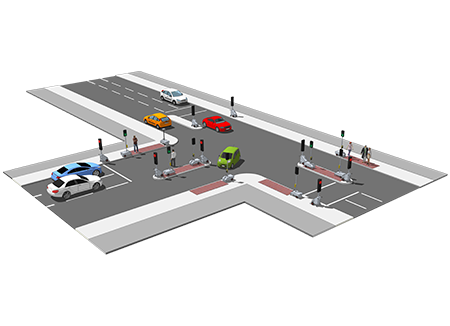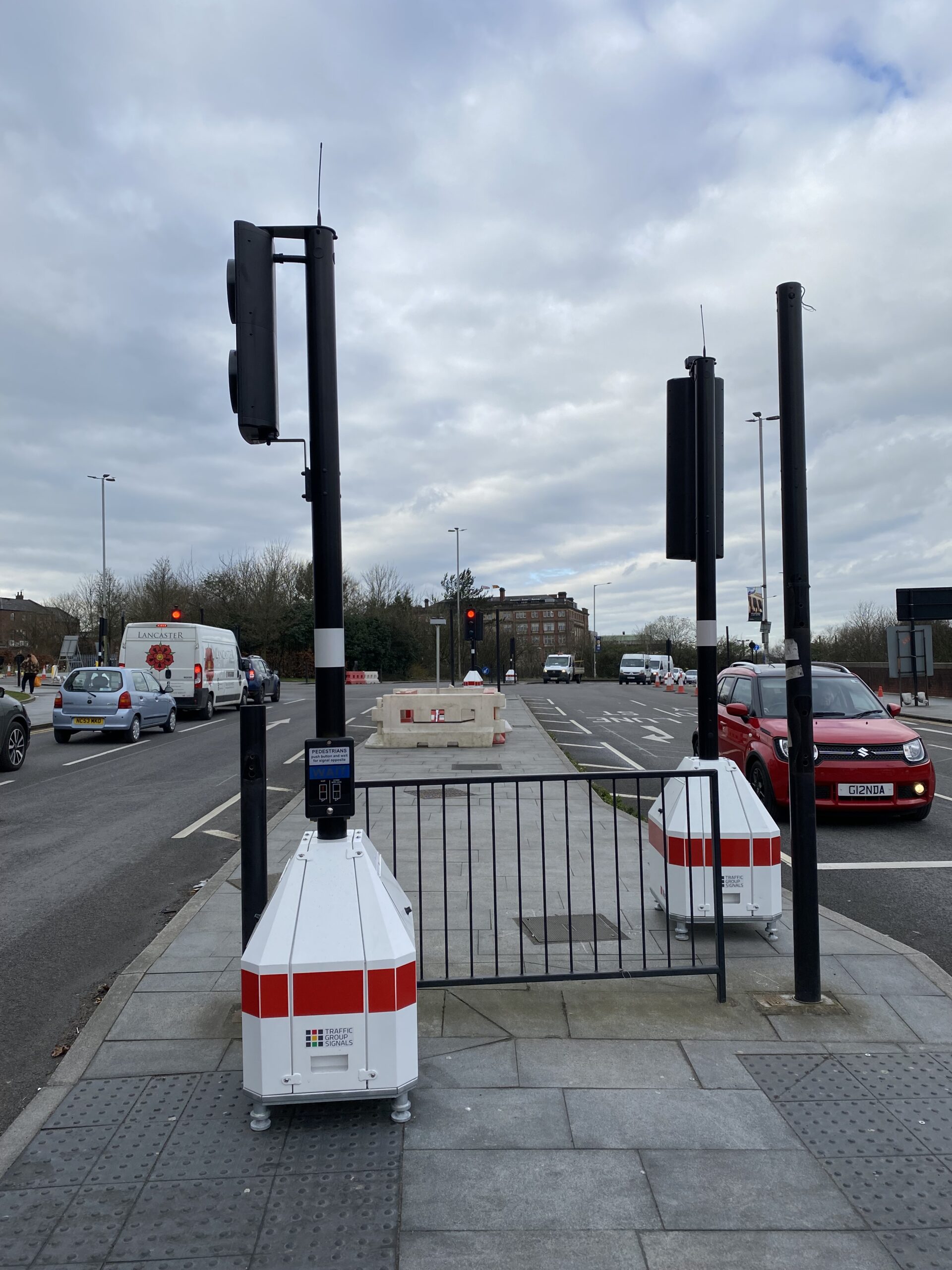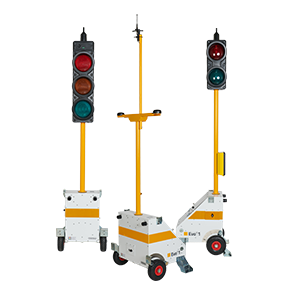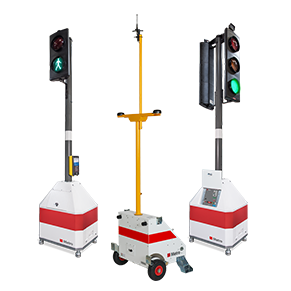At times it becomes necessary for a set of temporary signals to act in place of an existing permanent signalling system. This could be as a result of a junction remodelling activity or it could be as a result of works whereby the permanent signals will be upgraded or replaced.
Complex Urban Junctions
Junction works located in inner city areas have the potential to cause widespread disruption.
Inefficiencies created by phase-based signalling and overextended green times have a knock-on effect on surrounding infrastructure.

Challenges
For schemes of this nature, portable traffic signals cannot deliver the required type of signalling.
-
1. Phase-based signalling is too simplistic
Temporarily replacing a highly efficient permanent signal controller with phase-based portable signals can cause very significant levels of disruption.
This is unfortunate since portable signals have characteristics that are desirable for such works.
They are quick and easy to deploy and don’t rely on any of the permanent system cabling infrastructure.
-
2. Proximity to other junctions
By the nature of an urban junction, it is usually located close to other junctions.
This can cause issues and inefficiency when neighbouring permanent signals are not co-ordinated with the signals deployed within the temporary works.
-
3. Signal Visibility
Another issue is visibility.
At busy sites of this nature, portable signals don’t have the necessary visibility profile being that their signal heads are smaller than full-sized TSRGD diagram 3000 signal heads.
Speak to an expert
Contact us
case study
Transforming Cities with Metro Pro
With a focus on sustainable movement and accessibility in the city, the Transforming Ringway Project in Preston is the first Transforming Cities Fund Scheme to be activated in the region. The aim of the Government funded £14.5m scheme is to introduce improvements to highways infrastructure to encourage more active modes of travel, such as walking and cycling, as well as increasing access to public transport.
For these complex works Lancashire County Council has partnered with Road Safety Services and Traffic Group Signals, working closely together to deploy the fully wireless Metro Temporary Traffic Signal system. Metro delivers stage-based signalling, normally only found in cabled or permanent solutions, to meet the site’s unique and ever-evolving requirements.


